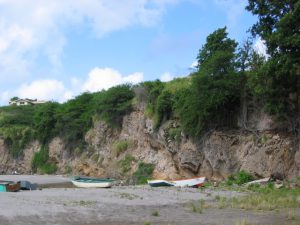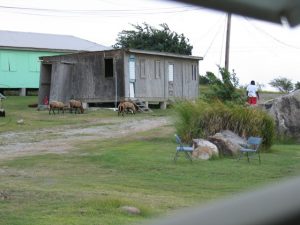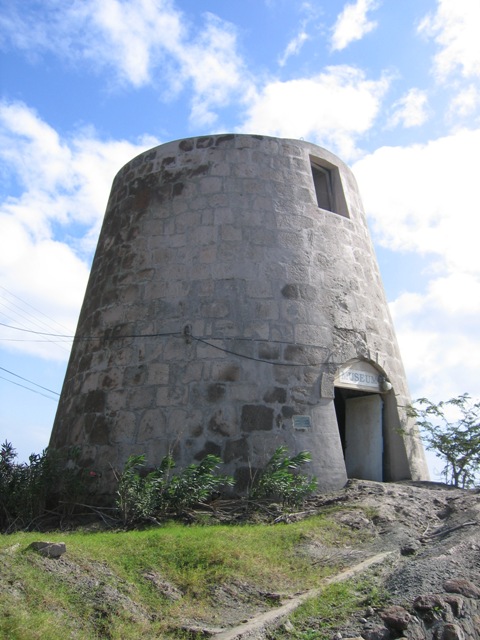
Mill on a sugar plantation from the 17th to 19th centuries
Early history of employment:
The economy of Montserrat has historically been agriculturally-based. European colonization resulted in inclusion in the Atlantic slave triangle; remains of sugar plantations are scattered throughout the island. Post-emancipation, Montserrat continued to rely on its agriculture for employment and revenue. Limes and cotton were two products that sustained the economy of Montserrat after the elimination of the plantation system (see figure below).
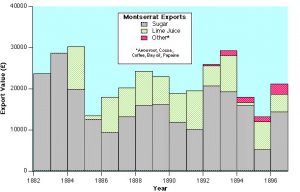
This graph shows Montserrat’s exports from 1882 to 1896
(Innanen, William G “.A Condensed History of Montserrat.” © 1998. http://innanen.com/montserrat/history/1880-1890/exports1882-96.jpg)
Post-emancipation, many Montserratians left the island in search of employment opportunities elsewhere. One era of substantial migration was during and post-World War II. Montserratians migrated to the U.K. in particular in search of greater economic opportunity. The decades following the war were characterized by both increased participation in labor unions and the labor party (Source: Innanen, William G “.A Condensed History of Montserrat.” © 1998. http://innanen.com/montserrat/history/1880-1890/exports1882-96.jpg).
Traditional Industries:
- Fishing boats on the beach of the Belham River Delta
- Herder in Gerald’s
Fishing and herding are two traditional industries that remain prevalent on Montserrat today. Goats, donkeys, and other livestock are herded in both safe areas and exclusion zones. Goats are especially important because they are used in the Montserratian delicacy “goat water.”
Tourism and Other Employment:
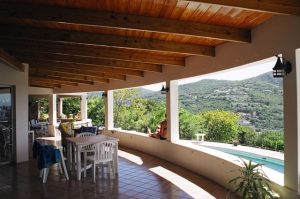
Tradewinds Real Estate sells and rents villas like The Sunset as part of the residential tourism industry
The years following World War II were marked by an increase in residential tourism in Montserrat. Many ex-patriots ventured to the island and subsequently sparked an economic boom. This was greatly apparent in the island’s capitol, Plymouth. The establishment of shops, restaurants, schools, a medical school and hospital, and a seaport filled the capitol as well as the rest of the island with life and contributed to its economic flourish.
In 1997, life on Montserrat drastically changed. The eruption of the South Soufriere Hills Volcano did more damage than could ever have been expected. The eruption completely destroyed Plymouth and covered approximately half of the island in volcanic material. The entire island was brought to a standstill as the economy collapsed and thousands were left without jobs.
Return to Employment and Occupations page
